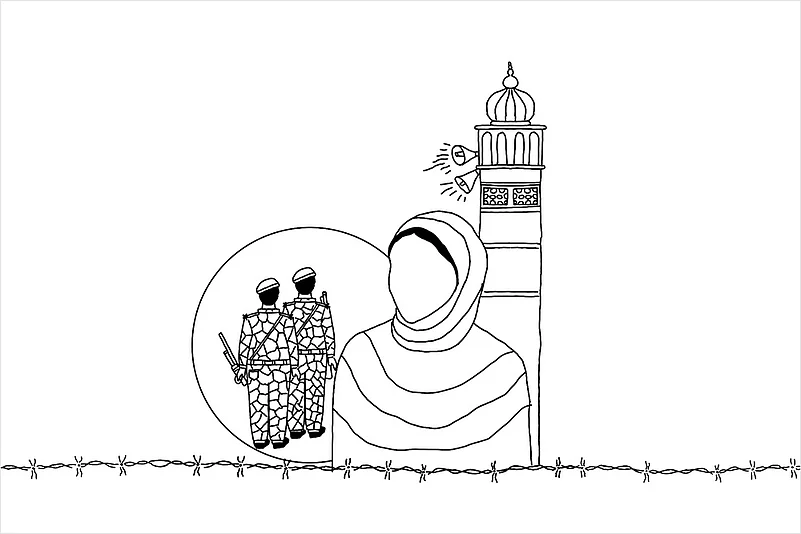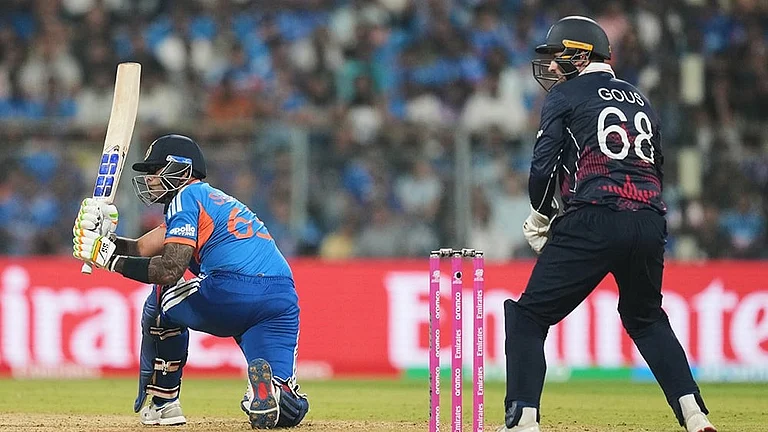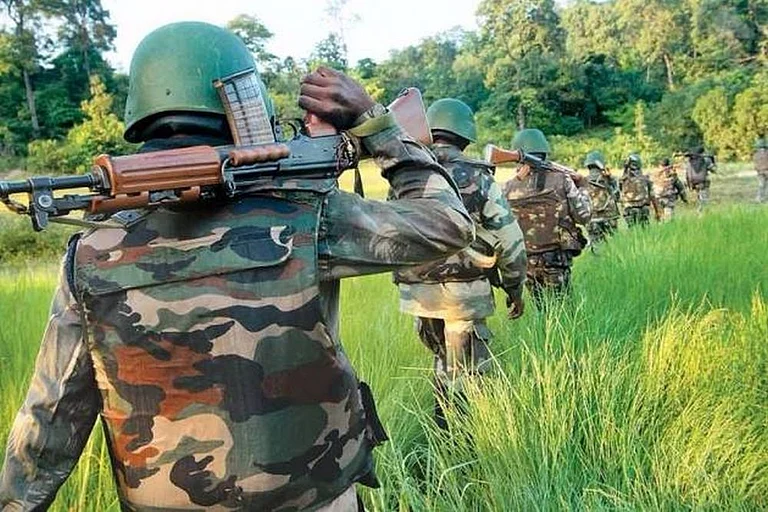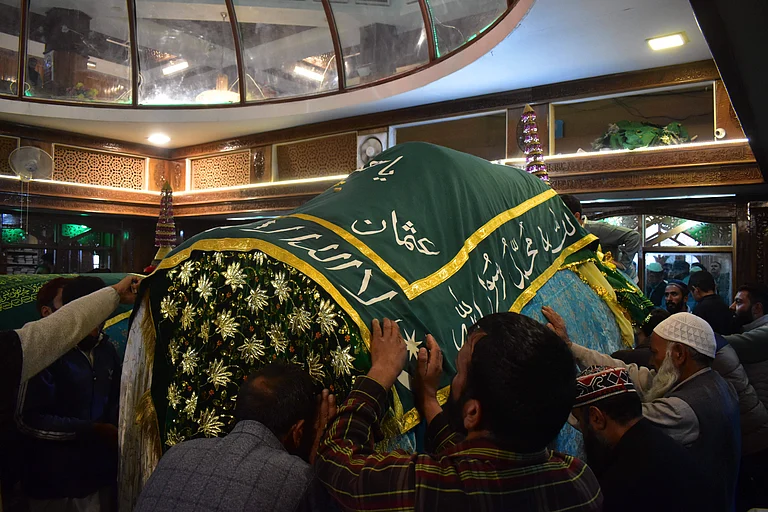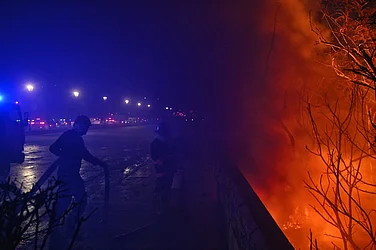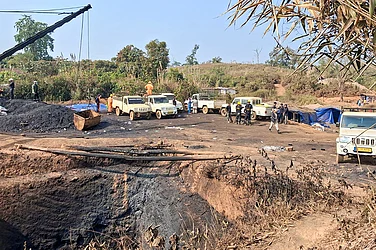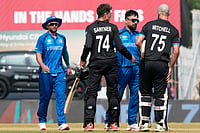Yaad-e-maazi azaab hai ya rab
Cheen lay mujhse hafiza mera
(Lord, the memory of the past
is a great torment.
Erase my every memory.)
While looking through the window in the early hours of dawn, I watched closely the tree that had started to bloom. It was mid-spring and the trees had started to flower.
From the Islamic pattern carved out at the entrance of the gate, I remembered a loud thud that I heard on a Saturday in 2009. It was evident that I had to open the gate and see if my mother had already come from work. To my surprise, I welcomed two army personnel to a party I never hosted.
I was in the ninth standard. We usually had Saturdays off. I was reading a book which was gifted by my aunt. I knew my mother would come back at 3:00 pm. It was a time when cellular mobile phones had not yet come into the market, and we still used landlines for communication.
She would call at 2:00 pm and ask me to do the daily tasks. The times in Kashmir were marked by protests and a slight chill. In the evenings, the protests took place after the Maghrib prayers, and I remember looking at the silhouette of the birds at sunset. The picturesque Kashmir looked morose that day.
While waiting for my mother, I used to spend time reading and writing. The best part of my day was reading story books bought by my family and myself. I remember reminiscing about childhood and playing day and night.
I grew up after the 90s era of Kashmir. I remember listening to the endless stories from my parents who had witnessed a history of bloodshed and trauma of merciless killings, and the ways terror and fear would be instilled in the minds of the locals. Especially my father; he had gone to an Eidgah and was given a great blow through the butt of the rifle. These are the kinds of memories we grew up with. The anecdotes of parents about the winter, and especially the kangri, were always sidelined by the larger picture at the forefront.
That day, it reminded me of the 90s and my parents’ art of storytelling. The very first memory of looking at the army personnel will always be as fresh as spring. After frequent inquiries, I asked them what they needed. I don’t recall everything that they said, but at that moment, for the first time, I felt that being a woman was the greatest gift I had given to myself.
I was always considered a son by my family. That day, I debunked science and wore my female gender on my sleeves. I loved being a woman at that time. I have a very clear memory of those army personnel asking me if the family had any sons. Apparently, they suspected that I had a brother who had joined the protests.
Despite telling them umpteen times that the family had no son, they didn’t move. I watched them as any child in the ninth grade would; unaware of the politics of the place I called my hometown. The mind also wanders umpteen times to the visibility of the olive-green uniform and the helmet that both wore. That day, the mountains not only echoed but also shrieked.
Every other day, homes were searched and people living in them were frisked. I remember it was then my neighbour came to her gate and asked the army personnel to leave politely.
And as I looked back, I saw my neighbour: the boy who was being searched was lying down on the rooftop. He signalled me with his pursed lips and a finger on his mouth to maintain silence. At that moment, I heard the birds chirping in a melancholic voice and a loud Azan from the mosque. I recall one moment when I almost got red on my cheeks and then indulged in the fact that I saw nothing. I remember witnessing his shaking hands out of fear and the way his face was taut with emotions.
A snippet I remember from this memory is also how I almost fainted. The event always leaves me in tears. The clock struck 3:00 pm. My mother finally arrived, and I could see she was worried about me.
I asked my mother if she had heard about the abrupt curfew that was imposed in the locality. She said yes, and to my surprise, added that she was taken aback when the army personnel asked her if she was related to a young girl (me) in that house (pointing towards our house).
I still remember the look on my mother’s face and the way she held up herself for me without losing her calm. As of today, nothing as traumatic as this has happened to me. I hope nothing happens. I remember pleading to the army personnel to go away, but I also remember them being unmoved.
After almost a decade, when I came back home—to Srinagar in Kashmir—this memory is still very fresh. I do wish that no one ever faces this in this part of the world—Kashmir.
(Views expressed are personal)
MORE FROM THIS ISSUE
Takbeer Salati is a Srinagar-based doctoral student and a creative writer
(This appeared in the print as 'When Two Men Came Knocking')






